The Sights and Sounds of St Dominic’s Fair
Every summer, Gdansk plays host to St Dominic’s Fair (Jarmark św. Dominika – link in Polish only). It’s one of the most significant cultural events in Europe, and with a history that goes back more than 750 years, it’s also one of the oldest.
Background of St Dominic’s Fair in Gdansk
St Dominic’s Fair used to begin on the saint’s feast day of 4 August. These days, it spans three weeks in July and August and its religious significance is played down. However, it still attracts traders from Gdansk and other parts of Poland. You might think of it as a summer version of Weinachtsmarkt – except that the event pre-dates Christmas markets by a generation!
What to expect at the Jarmark
Gdansk is already a popular destination due to its seaside location and nearby spa towns, but the fair seems to give the numbers a healthy boost. The old city feels just as packed as, say, Warsaw or Kraków when its streets are lined with stalls and teeming with visitors, even on a Monday. I’m not a fan of large crowds but the numbers at the fair didn’t put me off. Instead, they added to the festive atmosphere – no one could miss the fact that something was going on.
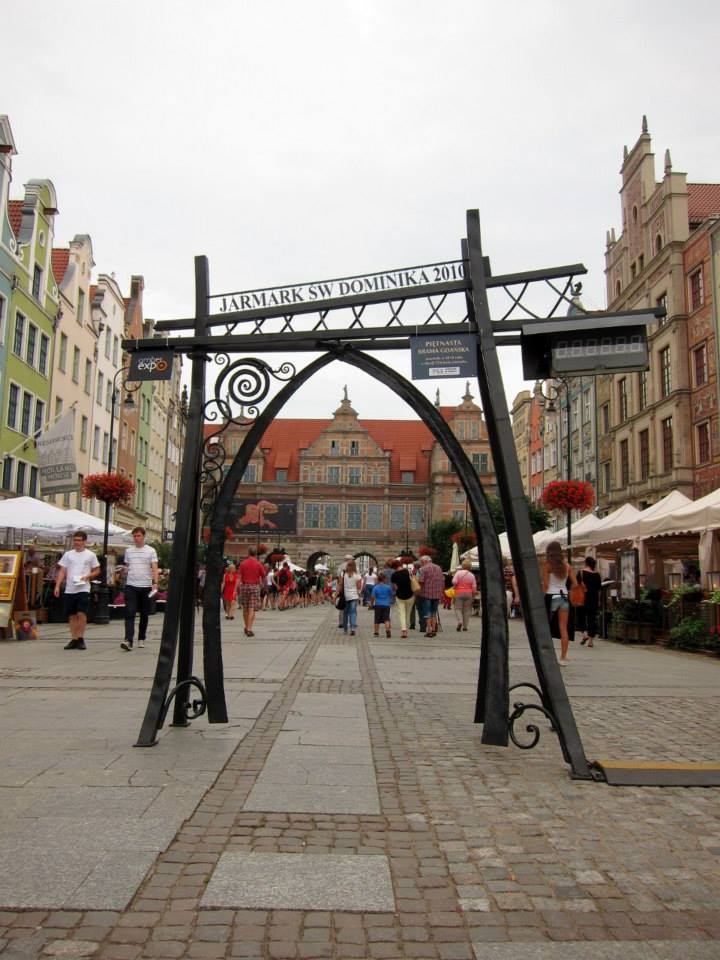
Music was all around, whether it emanated from the stalls and the open-air concerts or the steps of the town hall. It wasn’t nearly enough to drown out the noise of the crowds.
Market stalls
As for the stalls, it was easy to locate what one was after using an event map. The old city was divided up into zones according to the type of goods. On one street, we found most of the craft vendors like the ones on Etsy (this being a Baltic coast city, amber jewellery was plentiful); on another, there were racks and stacks of clothes that seemed to come from other parts of the world (I didn’t dare to ask where).
Like all good fairs, St Dominic’s is not short on food options. It provides opportunities to sample delights from other parts of the country, like shashlik, gingerbread and a million different kinds of sausages. I didn’t think it odd that I was nibbling on oscypek (a smoked ewe’s milk cheese) by the sea rather than in the mountains to the south; I was happy to have some after a break of four years. Read more about oscypek and other Polish delicacies.
A different kind of market: Hanoi’s Long Bien at daybreak
There was even craft beer and kvass. People on RateBeer don’t seem to enjoy this particular brand, however. Hopefully, you’ll find something better when you decide to go to the fair!
Flea market
The flea market was the most unusual mix – think paintings and old brass right next to army surplus products. Since the stalls could be rented for just a day, the mix changed daily. Most of it was of little use to me but it was fun to watch and photograph all the trade taking place in the shadow of Gdansk’s monuments and landmarks.
While in Gdansk, be sure not to miss the Westerplatte Monument where WWII began. For more European summer activities to take you past the late sunsets, see Janipaev/Ligo in the Baltic countries.
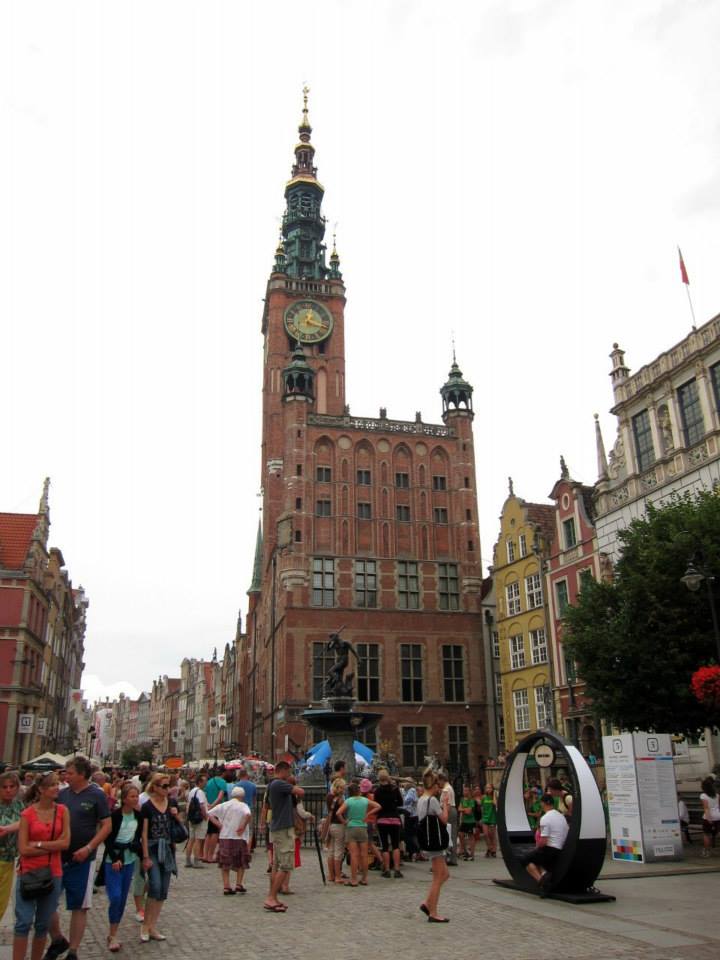
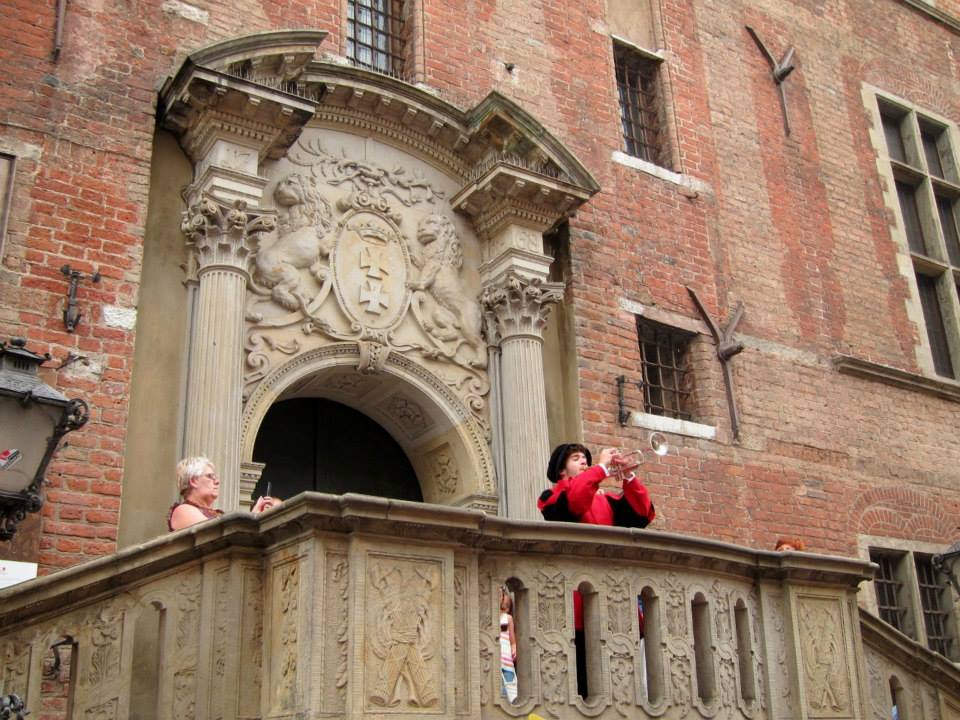
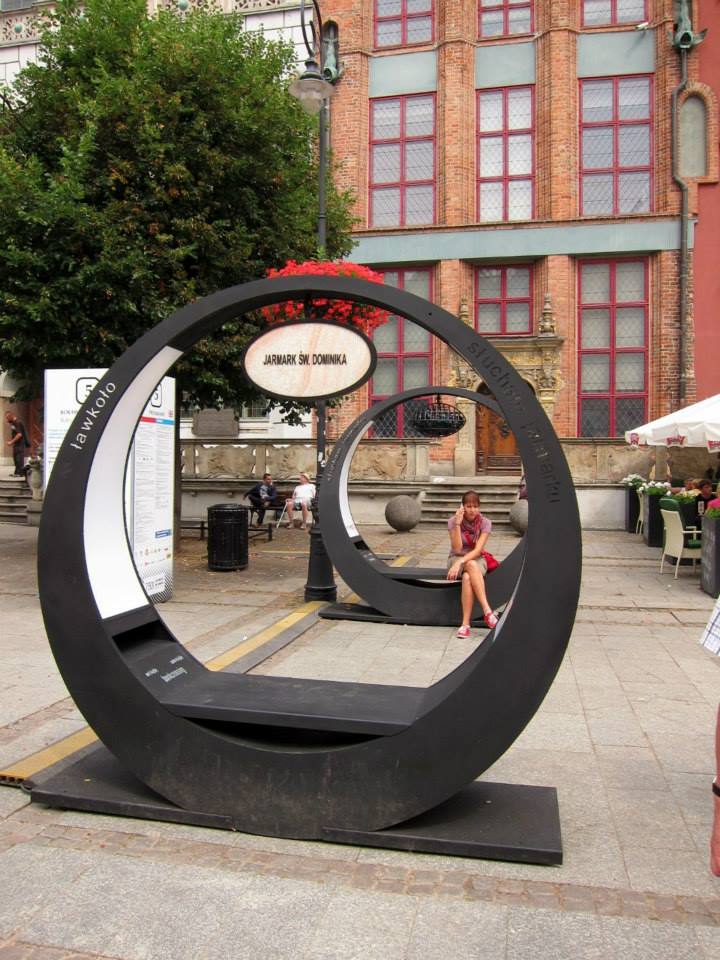
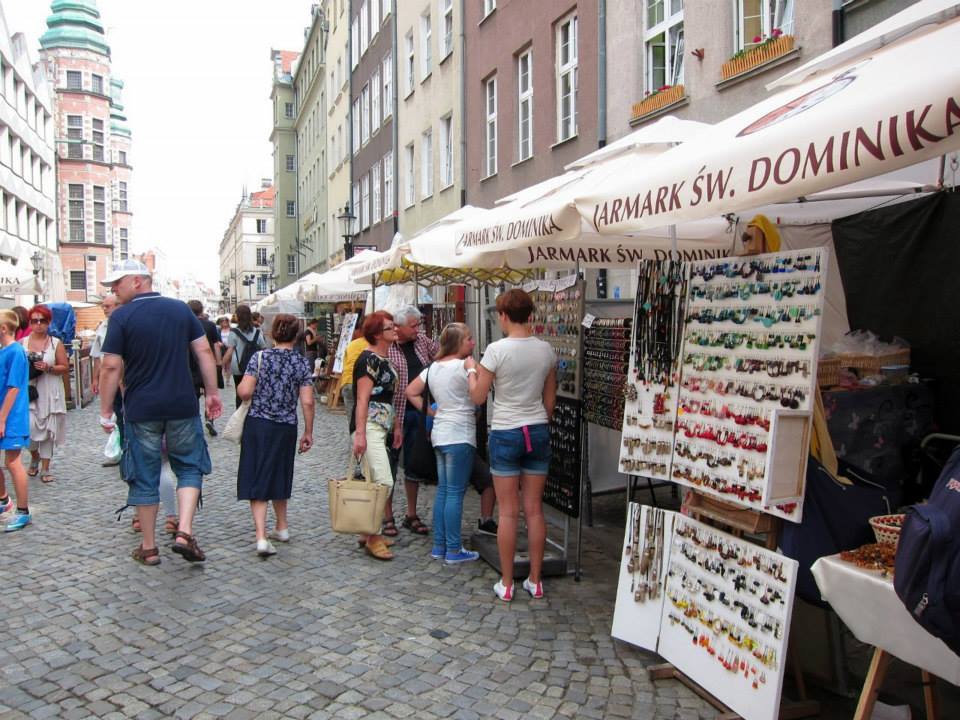
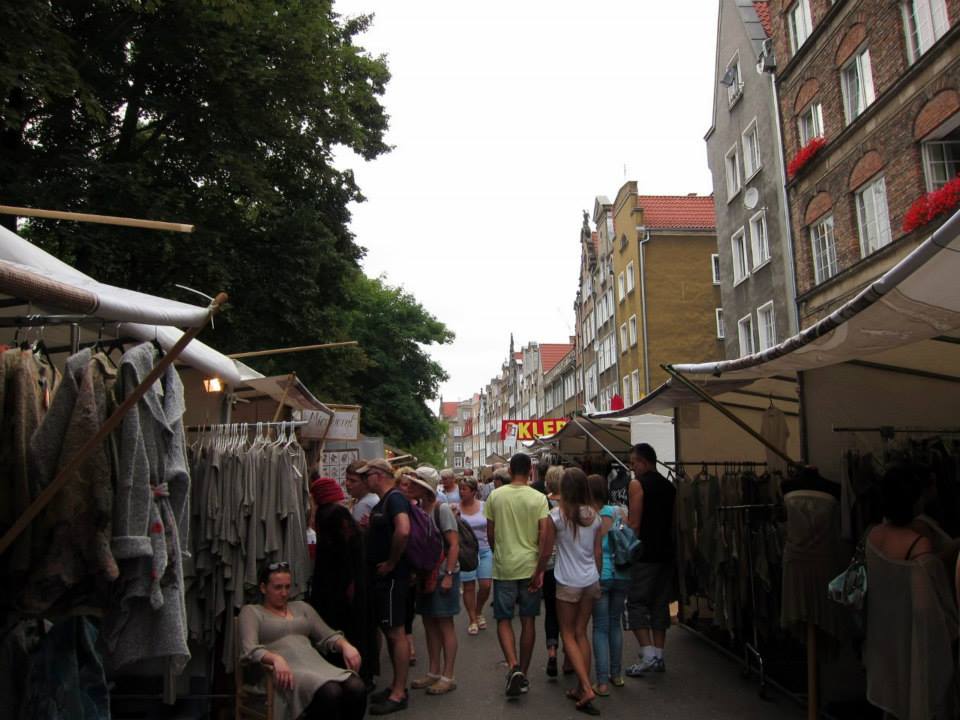
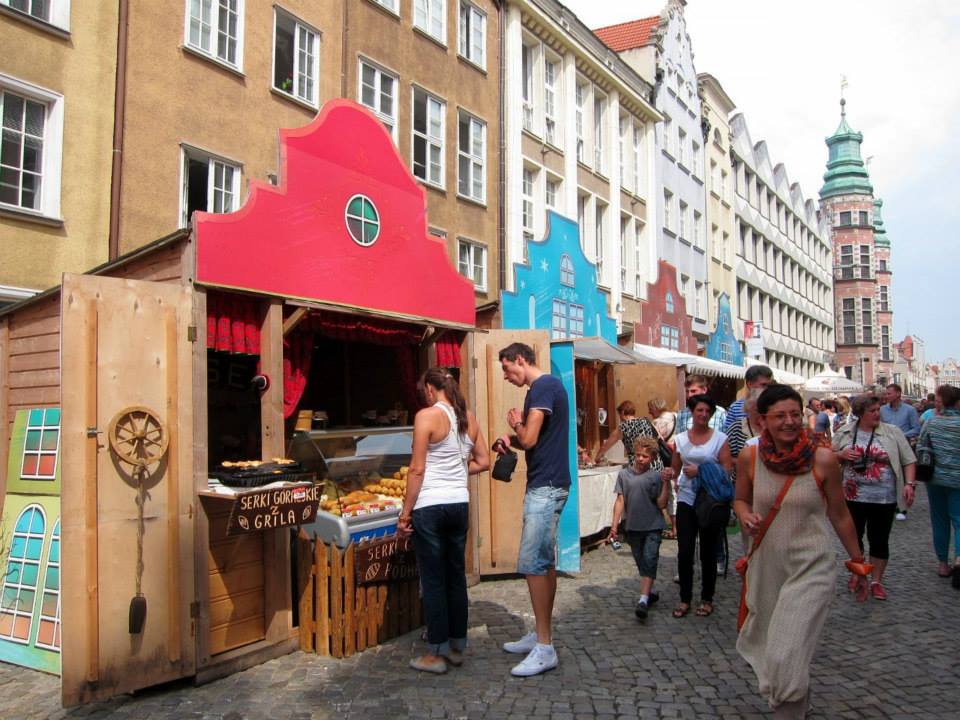
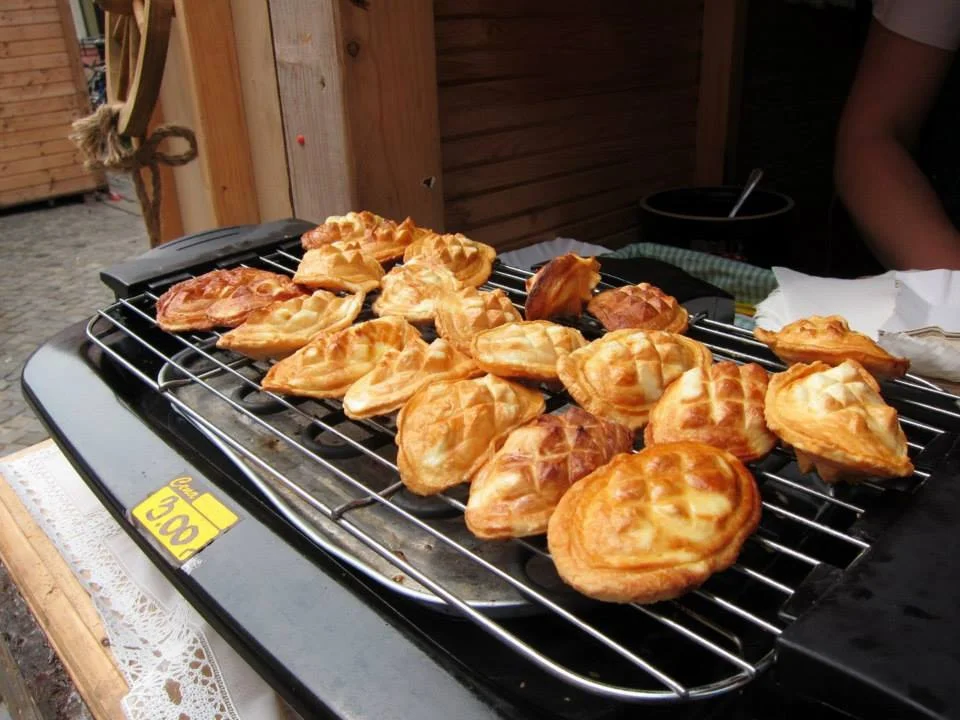
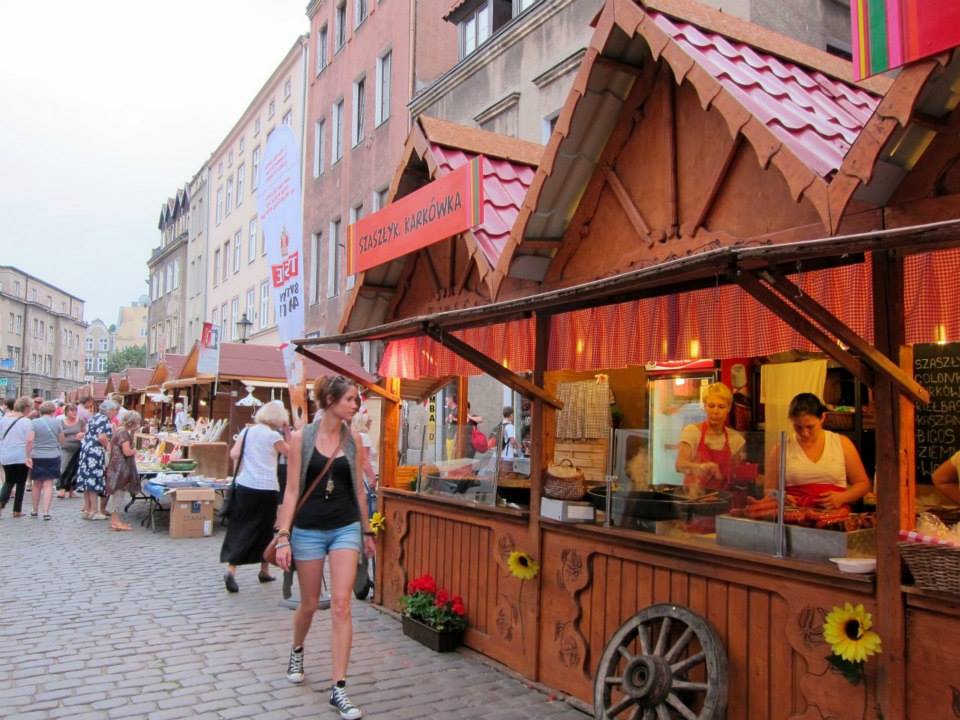
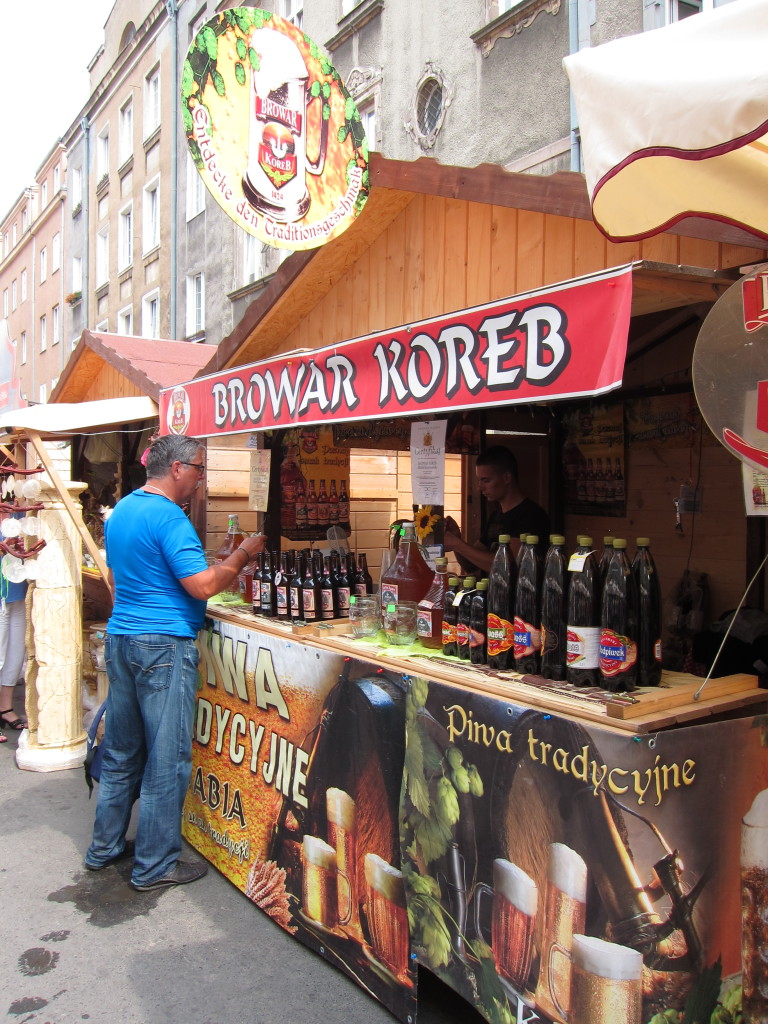

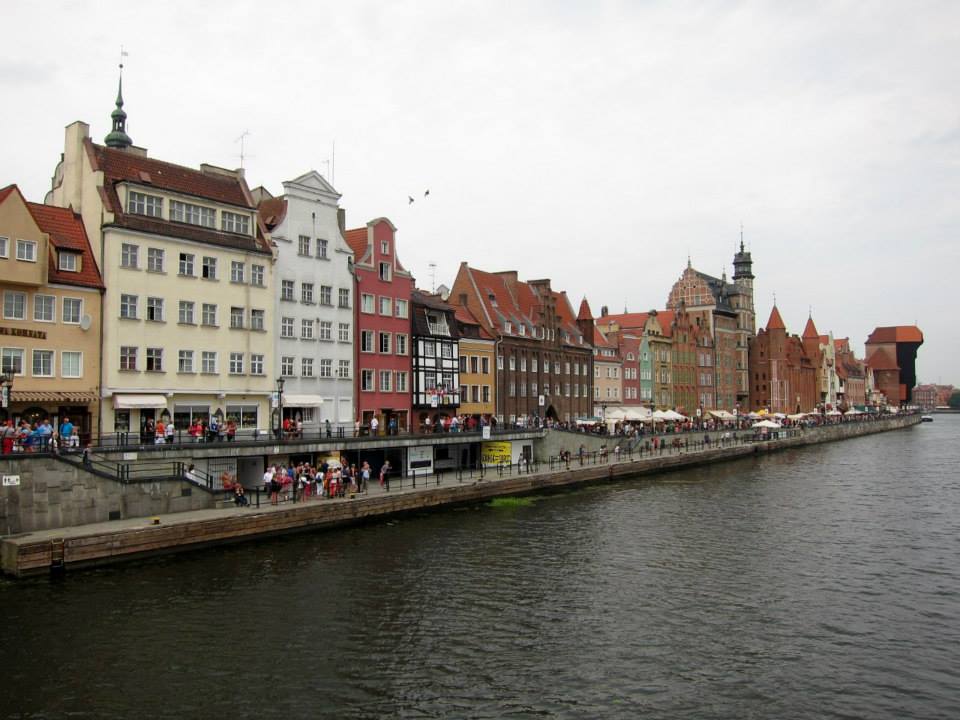
15/08/2015 @ 1:00 AM
Lovely post! I don’t know if you knew that but Gdańsk is Cez’s hometown! :) We used to go there in winter to visit his family. Lovely place, especially in summer…
17/08/2015 @ 7:37 PM
That’s news to me! I loved my brief stay there with my hosts.
04/08/2020 @ 7:46 PM
Gdańsk is a marvellous city to go backpacking in. I love it there. So much history and charm within, not even to mention nearby Sopot, Gdynia and Koscierzyna.